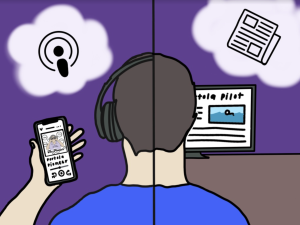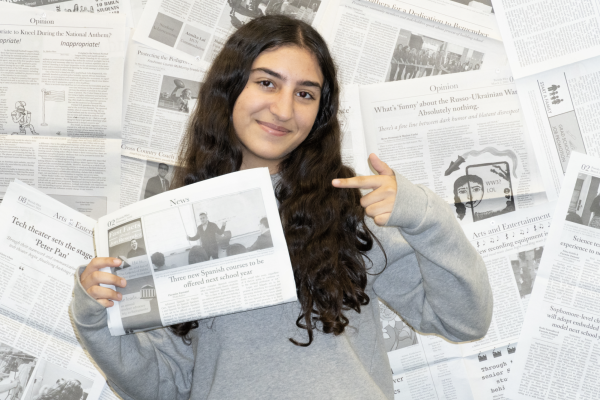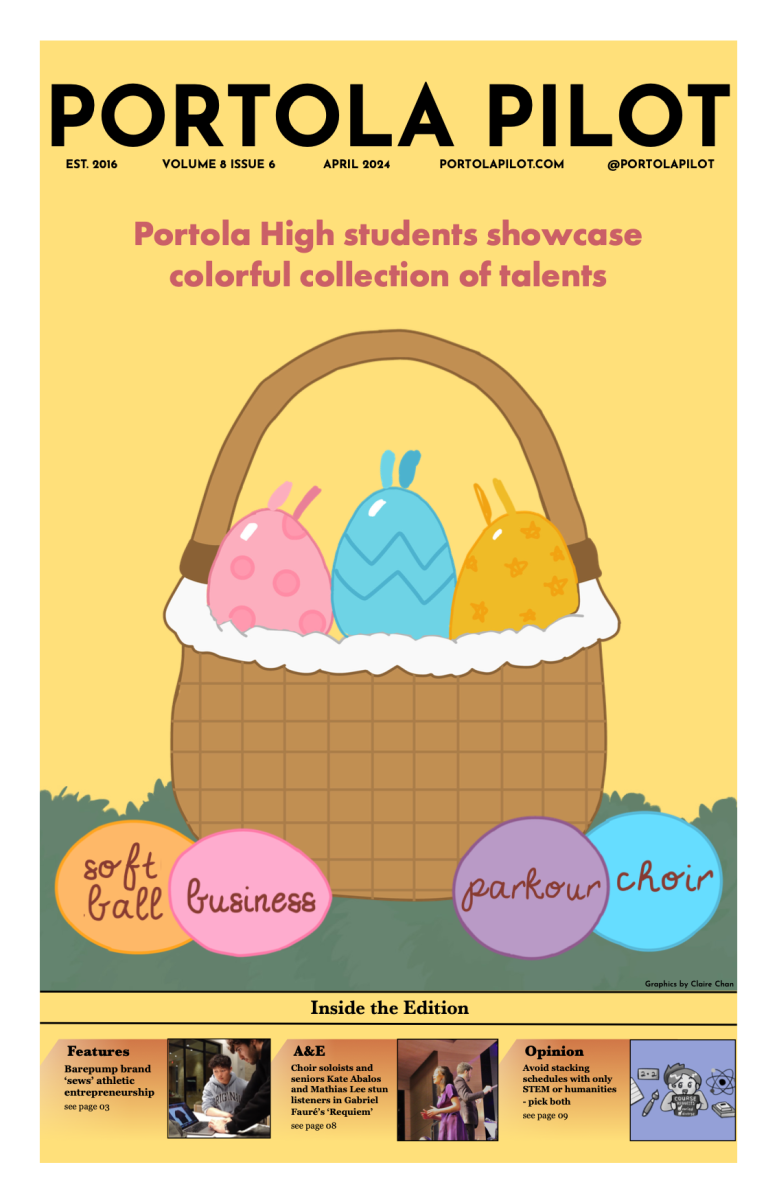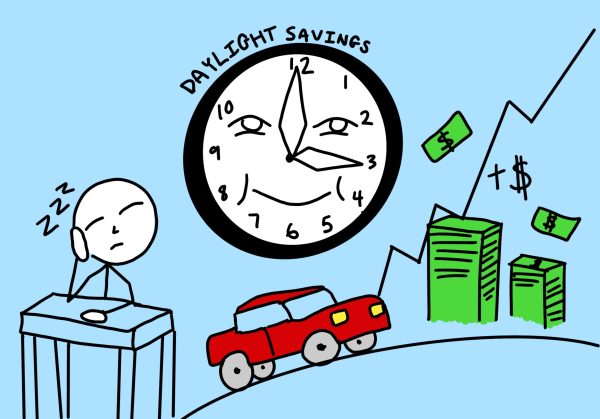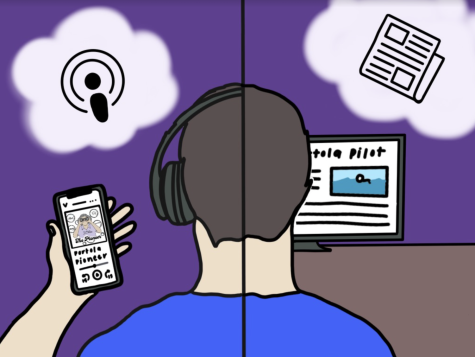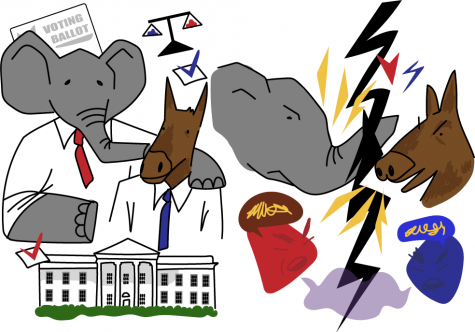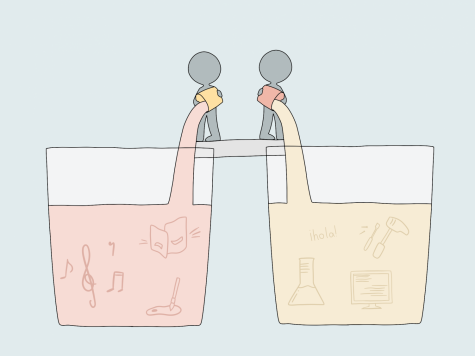Press Pause on the Podcast and Open up an Article Instead
January 30, 2023
Headphones in. Volume up. I press play on the podcast, and the narrator starts droning on recent protests in the country. I hear them describe the scene, the causes and — wait, did I finish that homework assignment?
I mull over the last couple days trying to remember while the words of the narrator fade more and more into the background. Several moments later, the voice of the podcast comes into my head again, except… What are they talking about again?
This would not be an issue with articles. Compared to podcasts, they are a more efficient way to concentrate and quickly grasp information since reading requires more engagement with the text.
Students often let their mind wander much more when listening to an audio compared to reading, according to a study published in Frontiers in Psychology.
Once distracting thoughts intrude during a podcast, it is much more difficult to recenter yourself, get back on track and follow along with the rest of the audio. With articles, it is much less tedious to scroll back and review a previous paragraph.
“Articles can also have visuals; they can have pictures that can help you better understand what they’re talking about,” junior Sofia Szczedrin said. “With podcasts, they can’t really do that as it’s only audio.”
These visuals work to support students’ understanding by representing the information they have read in a new medium, allowing them to make more connections and improve their learning, according to a study published in the National Library of Medicine.
Beyond just images, other related resources, such as studies or data, are often hyperlinked within the article, which can help further a reader’s understanding of the subject, according to social studies teacher Shameemah Motala. Thus, articles provide not only better focus, but also more methods to immerse yourself in the topic at hand.
In terms of big news events, articles are also quickly published and frequently updated to keep readers well-informed, while podcasts typically take longer to produce, according to Motala.
“With an article you can be around other people kind of briefly scrolling through it, and you can catch the key terms, while with a podcast you have to listen to the entire thing to get all the information,” Motala said. “An article is like a quick skim-read, got it all done, so that makes it a lot easier to digest.”
Instead of passively listening to podcasts, turn to articles for more active learning and consumption of the news.



